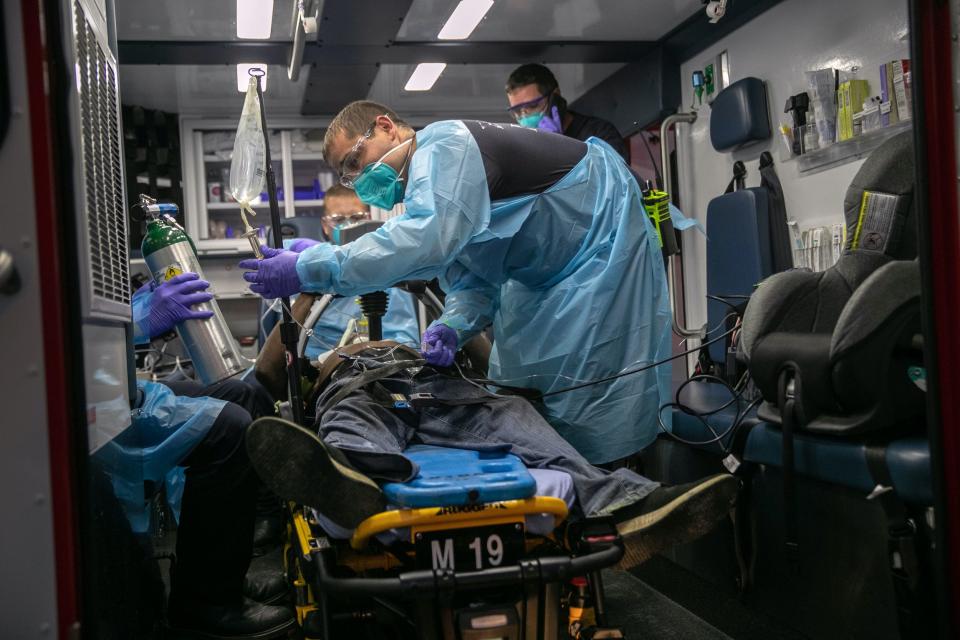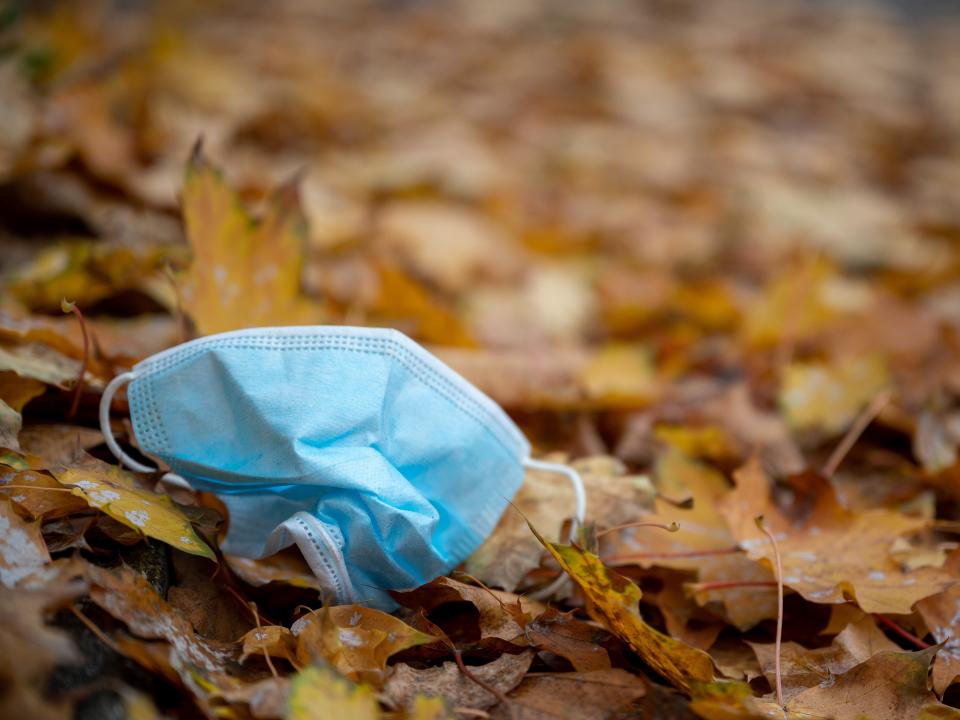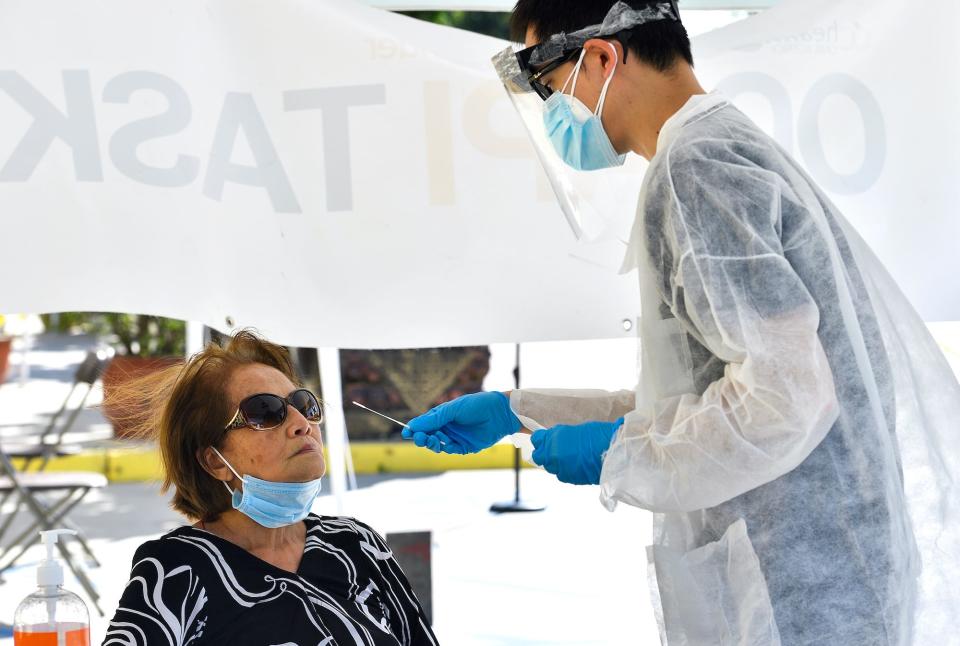More Americans are being infected with the coronavirus than at any time during the pandemic, but people are too tired to care

The US recorded 83,000 new coronavirus cases on Friday and again on Saturday — the highest daily totals since the beginning of the pandemic.
But experts say people are experiencing "pandemic fatigue," meaning they are taking more risks as they grow impatient over a long lost sense of normality.
At the same time, "mixed messages" from government officials and leaders who are "downplaying the danger" have made people experiencing pandemic fatigue more vulnerable to confirmation bias, one expert said.
Staying safe and abiding by social-distancing guidelines are still the most important things to do, experts say. Taking care of your mental health and following routines can help.
Over the weekend, the US recorded more new coronavirus cases than on any other day since the pandemic began.
On Friday, the country recorded 83,757 new infections, according to Johns Hopkins University. On Saturday, another 83,718 Americans were added to the total. More than 8.6 million people have now contracted the virus in the US, the most of any country.
Those daily totals are like adding the entire population of Sioux City, Iowa, per day to the count. One expert told CNN that new daily cases in the US could "easily" reach the six digits soon.
But the landscape of the pandemic looks nothing like it did in March. Then, states and cities rushed to enact public health orders telling people to stay home and allowing in-person work only if it was essential.
Today most states aren't under lockdown orders. Many are letting people go to places like restaurants, bars, places of worship, offices, and salons — even though we know the virus spreads easiest indoors where maskless people are in close contact.
These skyrocketing numbers of new cases signal the start of a third wave of coronavirus infections, which experts say could be the deadliest to date.
But Americans seem too exhausted to care.

Pandemic fatigue leads to more risk-taking
Increased time spent indoors this fall and winter coupled with larger gatherings over the holidays could exacerbate the surge in coronavirus cases, scientists previously told Business Insider's Aria Bendix.
The increase in the number of cases is accompanied by an uptick in hospitalizations and deaths from the coronavirus. While the development of therapeutics has decreased the likelihood that people will die from the disease, a model from the University of Washington predicted the US's total coronavirus deaths could surpass 511,000 by the end of February, Bendix reported.
If 95% of the country wore masks, the model found, we could save 130,000 lives.
But roughly seven months into the pandemic, people are being less careful and taking more health and safety risks as they become tired of the social-distancing guidelines and nostalgic of their long-lost normality, experts said.
"A lot of people probably are less careful and are taking risks, in part because they really want their lives to return back to normal," Craig Smith, an associate professor of psychology and human development at Vanderbilt University, told Business Insider. "They're sick of it. They've turned their lives upside down to try and be safe going through the period back in the spring of shelter in place."

Families who have to calculate the risk of participating in activities that used to be commonplace suffer from "the exhaustion with dealing with all of the responsibilities around keeping themselves and their loved ones healthy and safe," Dr. Matifadza Hlatshwayo, a clinical instructor at the Washington University School of Medicine, told Business Insider.
The craving for a sense of normality is palpable. Parents have had to take care of their kids at home, as many schools are closed across the country. Friends aren't supposed to gather in person and instead connect over video calls.
"It's changed our culture. It's changed our ability to socialize," Hlatshwayo said.
Mixed messaging is particularly dangerous when people are already too tired to be careful
Americans are increasingly vulnerable to making risky decisions because of pandemic fatigue, which makes misinformation and mixed messaging around the coronavirus particularly dangerous.
When responding to "mixed messages," people are more likely to selectively seek information that confirms what they want to believe because of "confirmation bias," Smith said.
Meanwhile, government officials continue to clash with each other on how the public should approach the pandemic.

On Sunday, White House chief of staff Mark Meadows said, "We are not going to control the pandemic." His statement was met with swift criticism from leaders on the left, including Democratic presidential nominee Joe Biden and New York Gov. Andrew Cuomo.
Smith said it would be helpful to make sure medical experts were able to deliver clear messages without interference or criticism.
This month, more than 1,000 former and current officers from the US Centers for Disease Control and Prevention signed a letter addressing the concerns over the "politicization and silencing" of the health agency. On several occasions, Trump has publicly broke with Dr. Anthony Fauci, the nation's leading infectious-disease expert.
Leaders who are "downplaying the danger" encourage people who are "so sick of all the things that they're missing out on" to make risky decisions that could be incredibly dangerous, Smith said.
"Consistency in messaging is key so that if we're all following these guidelines, and we do so for a period of time, then we can all start to enjoy that measure of success," Hlatshwayo said.

Staying safe is still the utmost priority in the pandemic
So what should people do to mitigate pandemic fatigue, especially as coronavirus cases are back on the rise? Experts say the most important thing is to continue staying safe.
"The first message hasn't changed," Hlatshwayo said, emphasizing that we must wear masks, maintain social distance, and eliminate large gatherings.
Around the world, countries including South Korea and New Zealand have reinstated lockdowns in response to surges in cases. Sweden recently moved away from its previous no-lockdown stance in response to the growing number of cases.
At the same time, everyone should pay special attention to the toll the pandemic is taking on their mental well-being and seek help when needed, Hlatshwayo said.
Carisa Parrish, an associate professor of psychiatry and behavioral sciences at Johns Hopkins School of Medicine, told Business Insider that people should reach out to their primary-care doctor if they have any concern about the health risks that certain activities may pose.
She also said it was particularly important to make plans and gradually build a regular schedule and routine with regular exercise, work, and meals, which can all help build your mood.
"I see a lot of people trying to convince themselves that it's OK to relax what the safety precautions are 'just this one time,'" Parrish said, adding that people often perceive lower risk when put in social situations with people they really enjoy spending time with, such as family and friends.
There is a mental fatigue to recalculating the risk each time, she said. "Just because we feel safer doesn't mean we are safer," she added.
Aria Bendix contributed reporting.
Read the original article on Business Insider


